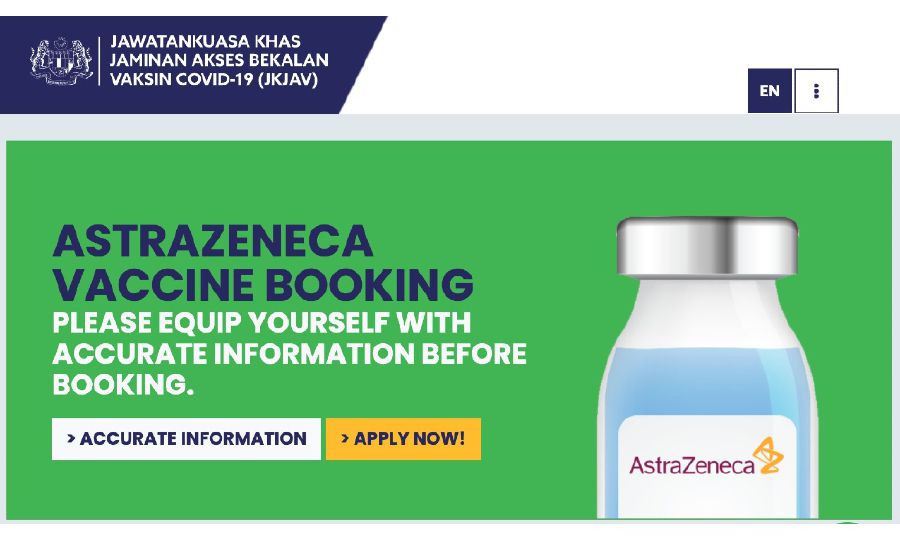Phase 2 of the National COVID-19 Immunisation Programme (NIP) is underway, with 877,646 Malaysians having received one dose of vaccination so far.
While the progress has been slow, the government has introduced a voluntary, first-come-first-serve basis for the AstraZeneca COVID-19 vaccine.
The response has been overwhelming, and now, the government has decided to stick with the formula.
When more doses of the AstraZeneca vaccination becomes available in the future, the government will maintain the voluntary basis for the rollout.
The NIP coordinating minister Khairy Jamaluddin told Malay Mail that the decision was made after the success of its first opt-in application rollout on Sunday (2 May).
The government decided to make the AstraZeneca vaccine available based on a voluntary basis due to "hesitancy towards this particular brand of vaccine".
This came after reports started emerging that the European-made vaccine could cause blood clots in very rare instances.
“This was seen in 8,000 cancellation of the vaccine registrations on MySejahtera when we announced the use of AstraZeneca under the NIP.
“And the number of cancellations was rising, and this resulted in JKJAV deciding that we should carve out AstraZeneca from the mainstream NIP and to have this op-in programme instead,” he was further quoted as saying.

However, after the government announced that they've decided to drop AstraZeneca from the NIP, Khairy revealed that about 80 per cent of those who initially cancelled their MySejahtera vaccine registration proceeded to re-register themselves for their vaccine appointments.
On Sunday, a total of 268,000 people in Kuala Lumpur and Selangor snapped up the appointment slots barely three hours after the registration was opened to the public.
This will be followed by another 610,000 doses from AstraZeneca itself in June, another 410,000 doses in July and 1.2 million doses in August and September respectively.
Once the supplies come in, Khairy assured Malaysians that the government will open the registration to other parts of the country.
While the progress has been slow, the government has introduced a voluntary, first-come-first-serve basis for the AstraZeneca COVID-19 vaccine.
The response has been overwhelming, and now, the government has decided to stick with the formula.
Roll out a succes

When more doses of the AstraZeneca vaccination becomes available in the future, the government will maintain the voluntary basis for the rollout.
The NIP coordinating minister Khairy Jamaluddin told Malay Mail that the decision was made after the success of its first opt-in application rollout on Sunday (2 May).
The government decided to make the AstraZeneca vaccine available based on a voluntary basis due to "hesitancy towards this particular brand of vaccine".
This came after reports started emerging that the European-made vaccine could cause blood clots in very rare instances.
“This was seen in 8,000 cancellation of the vaccine registrations on MySejahtera when we announced the use of AstraZeneca under the NIP.
“And the number of cancellations was rising, and this resulted in JKJAV deciding that we should carve out AstraZeneca from the mainstream NIP and to have this op-in programme instead,” he was further quoted as saying.

However, after the government announced that they've decided to drop AstraZeneca from the NIP, Khairy revealed that about 80 per cent of those who initially cancelled their MySejahtera vaccine registration proceeded to re-register themselves for their vaccine appointments.
On Sunday, a total of 268,000 people in Kuala Lumpur and Selangor snapped up the appointment slots barely three hours after the registration was opened to the public.
More doses incoming
According to Khairy, Malaysians can expect an arrival of some 1.1 million doses this month via the COVID-19 Vaccines Global Access or Covax.This will be followed by another 610,000 doses from AstraZeneca itself in June, another 410,000 doses in July and 1.2 million doses in August and September respectively.
Once the supplies come in, Khairy assured Malaysians that the government will open the registration to other parts of the country.






